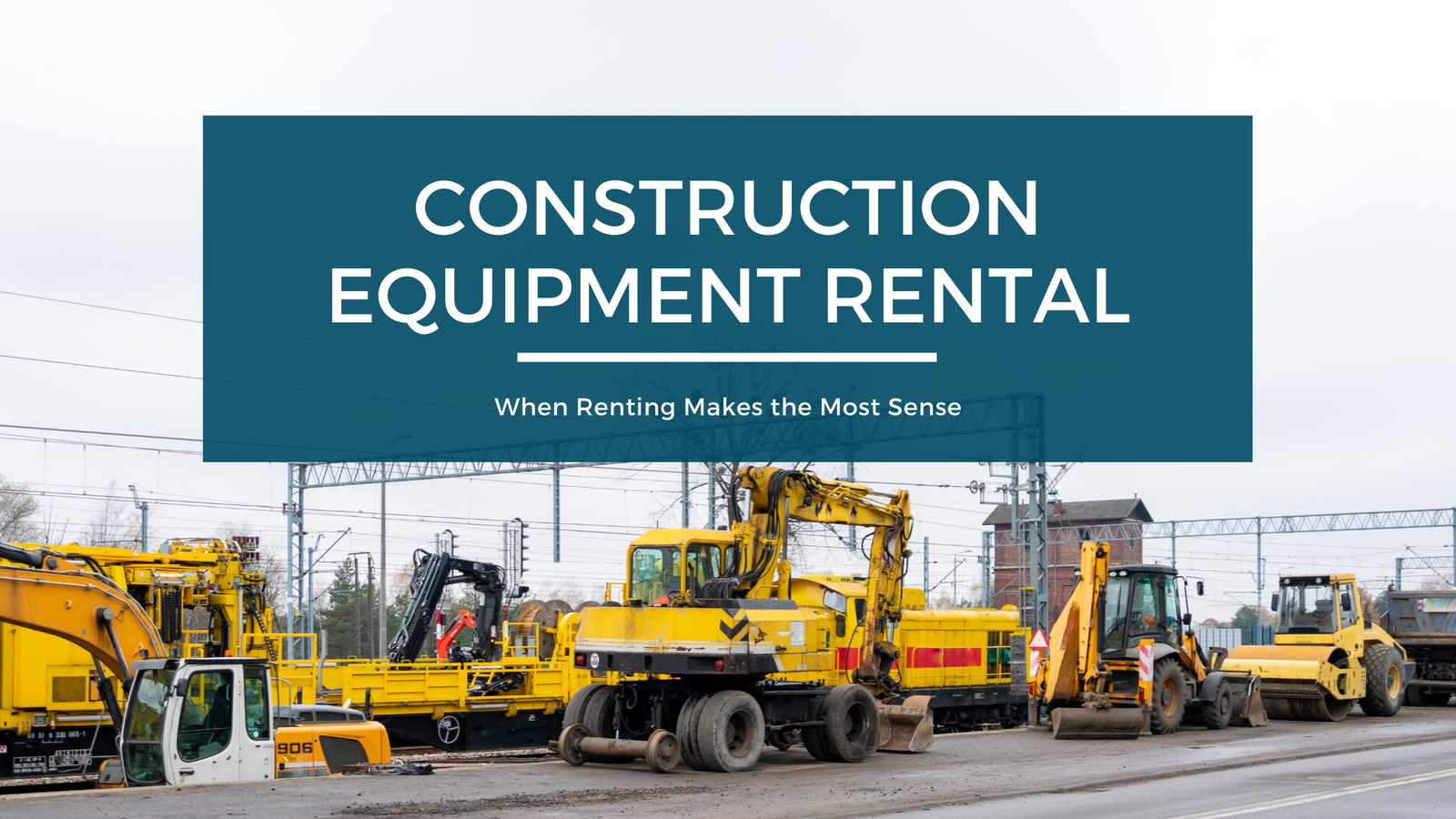
Why Construction Equipment Rental Is Perfect for Seasonal Projects
Seasonal construction projects often come with unique challenges, including fluctuating demand, weather constraints, and tight budgets. For many contractors and project managers, construction equipment rental offers an ideal solution to these challenges, providing flexibility, cost-effectiveness, and convenience.
In this blog, we’ll explore why renting construction equipment is a smart choice for seasonal projects, highlighting the benefits it brings to project planning, execution, and overall efficiency.
Flexibility to Match Project Needs
Seasonal projects often require specific equipment for short periods, making rental a practical solution. Renting allows contractors to access the exact machinery needed without committing to ownership.
Adapting to Changing Requirements
The nature of seasonal projects means equipment needs can vary widely depending on the tasks and timelines. Renting ensures you have access to the right tools for every phase of the project.
- Task-Specific Equipment: From excavators for site preparation to loaders for material handling, rental companies offer a wide range of options.
- Scalability: As project demands increase or decrease, you can adjust your equipment fleet accordingly.
This flexibility helps contractors optimize resource allocation and adapt to changing project needs.
Short-Term Commitments
Seasonal work often lasts for weeks or months, and owning equipment for such a short timeframe can be inefficient. Renting eliminates the burden of long-term ownership.
- No Idle Equipment: Once the project ends, you simply return the equipment, avoiding storage and maintenance costs.
- Project-Specific Durations: Rent equipment for as long as you need it, whether it’s a few days or several months.
By aligning equipment use with project timelines, construction equipment rental minimizes waste and maximizes efficiency.
Cost Savings for Seasonal Work
Renting construction equipment can significantly reduce expenses, especially for seasonal projects with fluctuating workloads.
Lower Upfront Costs
Purchasing construction equipment requires a substantial upfront investment, which may not be feasible for short-term projects. Renting eliminates this financial burden.
- No Down Payments: Unlike buying, rental agreements don’t require a large initial payment.
- Predictable Costs: Rental rates are typically straightforward, helping contractors budget accurately.
These savings allow businesses to allocate funds to other critical aspects of the project, such as labor and materials.
Reduced Maintenance Expenses
Owning equipment comes with ongoing maintenance and repair responsibilities, which can be costly. Rental agreements often include maintenance as part of the package.
- Pre-Maintained Equipment: Rental companies ensure their machinery is well-maintained and ready to use.
- No Repair Costs: If a machine malfunctions, the rental company handles repairs or provides a replacement.
By avoiding maintenance costs, contractors can focus on completing their seasonal projects efficiently.
Access to the Latest Technology
Construction equipment rental gives contractors access to modern, high-performance machinery without the need to purchase it outright. This is particularly beneficial for seasonal projects that require advanced technology.
Cutting-Edge Features
Rental companies frequently update their inventory, ensuring access to the latest models with innovative features.
- Improved Efficiency: Advanced equipment reduces downtime and increases productivity.
- Enhanced Safety: Modern machines often include built-in safety features that protect operators and workers.
Using up-to-date equipment ensures projects are completed faster and with greater precision.
No Depreciation Concerns
Owned equipment loses value over time, especially as new models are released. Renting allows contractors to use state-of-the-art machinery without worrying about depreciation.
- Always Current: Return older models and rent newer ones as technology evolves.
- Competitive Advantage: Access to modern equipment helps contractors stay ahead in a competitive industry.
Seasonal projects benefit greatly from the efficiency and reliability of modern construction equipment.
Elimination of Storage Challenges
One of the biggest drawbacks of owning construction equipment is the need for storage during the off-season. Rental eliminates this problem entirely.
Storage Costs and Space
Large machinery requires secure, weather-resistant storage facilities, which can be expensive and hard to manage.
- No Storage Fees: When you rent, the equipment is returned to the rental company after use, eliminating storage expenses.
- Reduced Logistical Burden: Contractors don’t need to worry about finding and maintaining storage space.
This convenience is especially valuable for seasonal contractors who only need equipment for part of the year.
Read Also: How Custom Corporate Headwear Can Become A Successful Marketing Tool
Streamlined Logistics and Availability
Rental companies provide comprehensive support, simplifying the logistics of acquiring and using construction equipment.
Hassle-Free Delivery and Pickup
Many rental agreements include delivery and pickup services, saving contractors time and effort.
- Convenience: Equipment is delivered directly to the job site, ready for immediate use.
- On-Demand Access: Rental companies ensure the equipment you need is available when you need it.
This streamlined process minimizes downtime and helps projects stay on schedule.
Expert Guidance
Rental companies employ knowledgeable staff who can help you select the right equipment for your project.
- Recommendations: Get advice on the best machinery and attachments for your specific tasks.
- Operational Support: Many companies offer training or instructions for operating rented equipment safely and efficiently.
The expertise provided by rental companies adds value to the rental experience, ensuring you get the most out of the equipment.
Environmental Benefits of Renting
Renting construction equipment can also support sustainability goals, making it an environmentally friendly option for seasonal projects.
Reduced Equipment Footprint
By renting instead of buying, contractors avoid contributing to the production and disposal of equipment they don’t use year-round.
- Shared Resources: Renting allows multiple contractors to use the same machinery, reducing the overall demand for new equipment.
- Minimized Waste: Equipment is returned and reused, promoting a circular economy.
Fuel-Efficient Models
Many rental companies prioritize energy-efficient machinery, which reduces fuel consumption and emissions during use.
- Eco-Friendly Options: Choose equipment with lower environmental impact without the commitment of ownership.
- Compliance with Regulations: Renting modern, compliant equipment ensures adherence to environmental standards.
By renting, contractors can reduce their ecological footprint while meeting project needs.
Conclusion
Construction equipment rental is a practical, cost-effective, and flexible solution for seasonal projects. From eliminating storage and maintenance challenges to providing access to the latest technology, renting ensures that contractors have the right tools for the job without unnecessary expenses or commitments. By aligning equipment use with project timelines and leveraging the expertise of rental companies, businesses can optimize their operations and complete seasonal projects efficiently.
Whether you’re tackling a landscaping job, roadwork, or building construction, renting construction equipment allows you to focus on delivering quality results without the headaches of ownership. For seasonal contractors, it’s the perfect way to maximize productivity and profitability.



